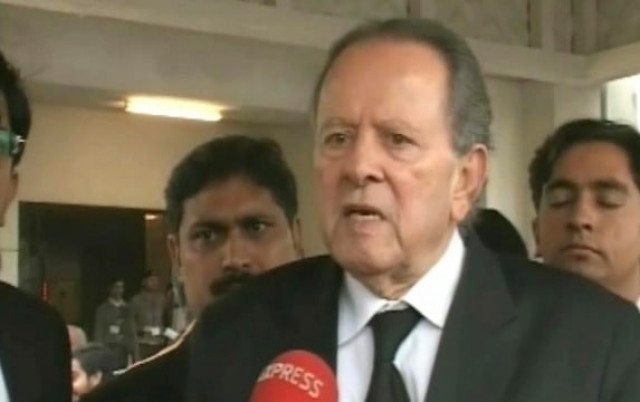A brilliant drifter
Having virtually gone through proverbial political mill, Pirzada looked destined to go places in his political career

Prominent advocate Abdul Hafeez Pirzada.
The stumble in 1982 that marked his inexplicable loss of confidence in the federal Constitution which he had helped draft and his equally perplexing act of embracing the concept of a confederal Pakistan was, perhaps, the reason why he could not regain his foothold in politics; or perhaps finding a career in politics to be too risky, he opted to dedicate the rest of his life to legal practice. But in this career as well, despite having all the right connections and a reasonably brilliant legal mind, he continued to drift rather make a mark. He did lead a successful legal battle against the so-called National Reconciliation Ordinance in the Supreme Court. But next, he is seen joining the legal team advising Pervez Musharraf when a case was instituted against the former military dictator under Article 6. And he lost what was his last high-profile case when the judicial commission led by former chief justice Nasirul Mulk rejected his client Imran Khan’s plea that the 2013 general elections were systematically rigged.
Published in The Express Tribune, September 4th, 2015.
Like Opinion & Editorial on Facebook, follow @ETOpEd on Twitter to receive all updates on all our daily pieces.














COMMENTS
Comments are moderated and generally will be posted if they are on-topic and not abusive.
For more information, please see our Comments FAQ